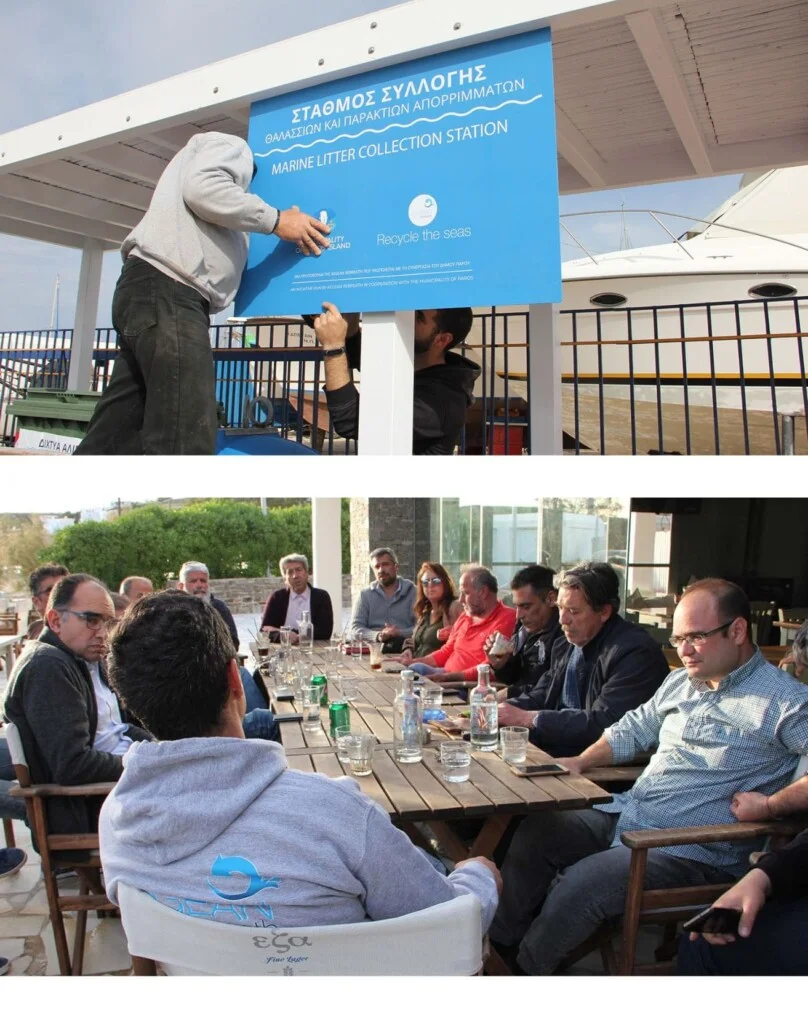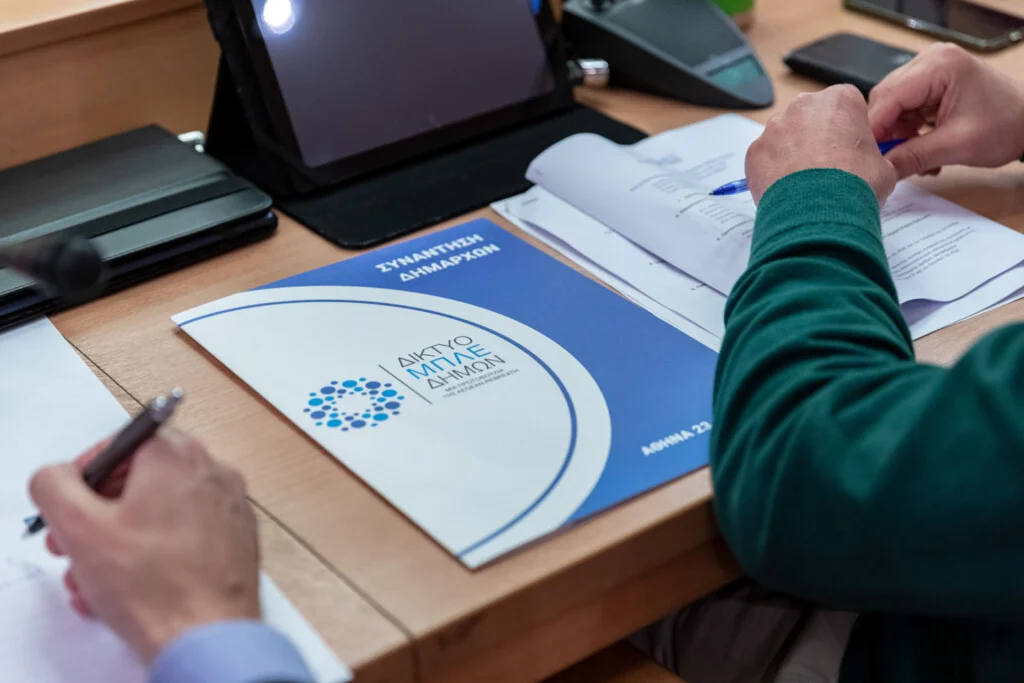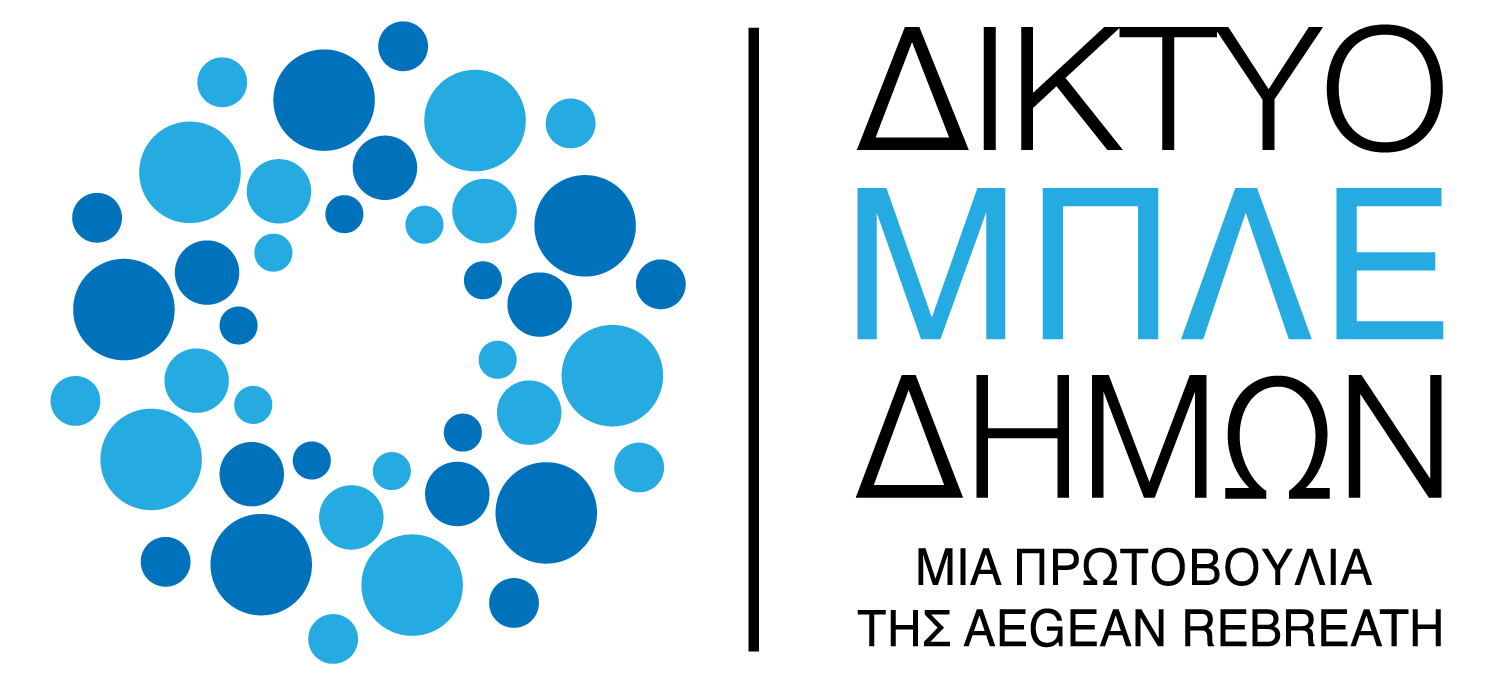The program was implemented by Aegean Rebreath with the support of the Stavros Niarchos Foundation and provided for the development of holistic actions for the marine environment in the Cyclades region. The goal of the program was to present best practices that could become a model at a national level and develop synergies that could lead to the creation of a sustainable model for the protection of our seas.
As part of the program, the installation of Marine Litter Collection Stations was launched in five islands (Paros, Antiparos, Syros, Tinos and Santorini) as well as the implementation of multiple interventions regarding the training and active participation of local communities. To guarantee the successful implementation of the project, Aegean Rebreath aimed from the very beginning at the local authorities, the civil society, the fishing community and other business entities, so as to ensure the sustainability and social acceptance of the relevant interventions.

1st phase of the program
In this implementation phase, the main axis of actions was to install Marine Litter Collection Stations and provide training to the members of the local communities and authorities.
A helpful guide towards this attempt was the island of Antiparos, where a Marine Litter Collection Station had been installed prior to the start of the program. This case provided our organization with important conclusions in terms of methodology.
At an initial stage, members of our organization held meetings with the mayors of the islands, representatives of the port funds, fishermen and other active citizens. In this context, memoranda of cooperation were signed with the local authorities, which allowed for an effective planning regarding the next steps, always based on a wider consultation with the parties involved.
At the same time, the consultation with the local community made possible to map the affected coastal and marine zones, which allowed to plan more targeted interventions.
Overall, these procedures not only contributed to establishing more trust with the members of the local communities, but also encouraged and engaged active citizens in the implementation of this ambitious undertaking.
2nd phase of the program
Six months after the installation of the Marine Litter Collection Stations, the first results from the operation of the stations were evident. The data were communicated to the local communities and authorities so as to enhance transparency and accountability, and acknowledge the role of the local communities with regard to those early achievements. This fact ensured both the strengthening of trust with our partners as well as a better understanding of the objectives of the program.
In addition, the implementation of expanded actions to the aforementioned five islands included interventions with the aim to relieve the marine and coastal environment, along with other actions such as research, training and raising awareness on environmental issues among the local communities. In this way, the local communities and authorities gained more information about the severity of marine pollution in their island, thus becoming more determined to actively contribute to this effort.



3rd phase of the program
The final phase of the program was based on capitalizing on the outcomes of the first two phases of implementation, so as to ensure the sustainability of the interventions. Since the project had already been assessed as successful and the common needs of the islands had been noted, the interest of the local communities increased and the conditions for the emergence of a regional model gradually became more apparent.
In this context, Aegean Rebreath held meetings with several mayors to discuss the possibility of creating a local network with all participating municipalities, now united under some common practices. Furthermore, the fact the municipalities embraced this proposal can only confirm that the program had already exceeded its initial goal. At the same time, the operation of the Marine Litter Collection Stations had showcased a successful and innovative practice implemented for the first time at a national level.
These developments led, at a later stage, to the establishment of the Blue Municipalities Network as well as to the expansion of Marine Litter Collection Stations to more regions all over Greece. Within a very short time, both the Blue Municipalities Network and the operation of Marine Litter Collection Stations were recognized as a good practice by several European organizations.

